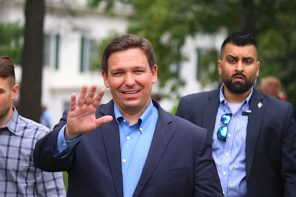Lately there’s been a lot of talk about civility, or, rather, the lack of it. There was the Rally to Restore Sanity, Jim Wallis’ “Covenant for Civility,” and for the more serious-minded, a new book, In Defense of Civility.
In the midterm elections, however, it was the decidedly uncivil Republicans and their name-calling Tea Partiers who triumphed over the party led by that most civil of politicians, Barack Obama. In the weeks since, there have been the expected cries for the president to get tough with “those Republicans.” Obama’s compromise (or, depending on whom you talk to, cave-in) on the Bush tax cuts has only heightened such appeals. One satirical headline read: “In Latest Compromise with GOP, Obama Agrees He is A Muslim.”
Ironically, it is the Republicans who help us realize that while we may believe that civility is important, in politics, as in life, it must not be allowed to displace a party’s fidelity to its ideals. Integrity and fortitude are crucial if a party is to engage in principled compromises—rather than to simply be compromised. When the latter happens, a party often undergoes something akin to an identity crisis.
While it certainly wasn’t spurred on by an avalanche of compromise, the Republicans underwent such a crisis in 2008; reemerging with a renewed sense of purpose around the message of “small government.” Democrats on the other hand are a coalition of competing interest groups that finds it hard to reach a consensus about their priorities. This is where civility comes in. It’s something that almost all Democrats can accept. Somewhere along the way, however, civility has become something more.
In 2008, then-Senator Obama campaigned on the theme of changing the partisan culture of Washington. Such a pledge is either a cynical ploy or naïve arrogance. After all, a culture of civility is not a goal that even a president can achieve without help. Two years into his presidency, it’s time to drop the talk of changing the culture of Washington and to put forward and defend a coherent vision of governance.
This doesn’t mean that Democrats should abandon civility. Instead civility should be understood primarily as a virtue and only secondarily as an end or goal. By virtue, I mean a skill or moral excellence that one consistently demonstrates in pursuit of a greater good.
Even this more modest view of civility is challenging in politics, where we recognize a politician to be civil when the virtue is displayed consistently—especially when it is costly to do so. But what can “costly civility” mean in politics? The civil politician is one who maintains his/her sense of dignity when others would engage in demagoguery, perhaps in retaliation and revenge. It means that political differences are drawn with respect and decency. The political opponent is also one’s fellow citizen.
Civility requires work: it asks a great deal in an era when Hitler comparisons are made without much apparent thought. On the other hand, civility is possible. It doesn’t demand that politics be selfless—merely respectful.
Most Americans want at least a show of being civil, but far more than a show is needed. In a political order requiring consent, it matters how we talk to one another; good governance depends on some measure of civility. At the same time, without something more substantive, civil talk is simply that—talk.
Civility, in contrast to empty rhetoric, is cultivated in pursuit of a moral end, whether that end is a classic notion of the common good, national security, or a sustainable economy. As a means to a moral goal, civility is capable of speaking tough words, but it does so with the humility necessary to reach a principled compromise.
The virtue of humility may be the most necessary and vexing of virtues. For the virtues, even in politics, cannot simply be commanded. Instead, virtue is acquired by imitation and practice, which requires a model and a student. Many Americans are sure that politics lacks any model of virtue.
This view is an indictment of our political culture, but it’s wrongheaded. Republicans and Democrats are both sinners and saints. Democrats are far from perfect, but they regularly display civility. Republicans will not be confused with Mother Teresa anytime soon, but they consistently show fortitude. Both parties have something to learn from the other, but the sad irony is that neither feels much like imitating its rival.
Still, there is hope. If in war it is often said that “to the victor go the spoils,” it is the humble who are most likely to imitate and acquire virtue, including the virtue necessary to govern well. Here then at last we have a bit of good news for the humble and a warning to the self-righteous.
The path of virtue is more paradoxical than it might first appear. Humility often comes only after we’ve been brought low, but acquiring virtue may tempt the humble to self-righteousness. Our democracy, for all its flaws, is not bereft of virtue. Indeed, in both victory and defeat we may be given second chances, second chances to treat each other with civility even as we fight for those things we truly believe.




